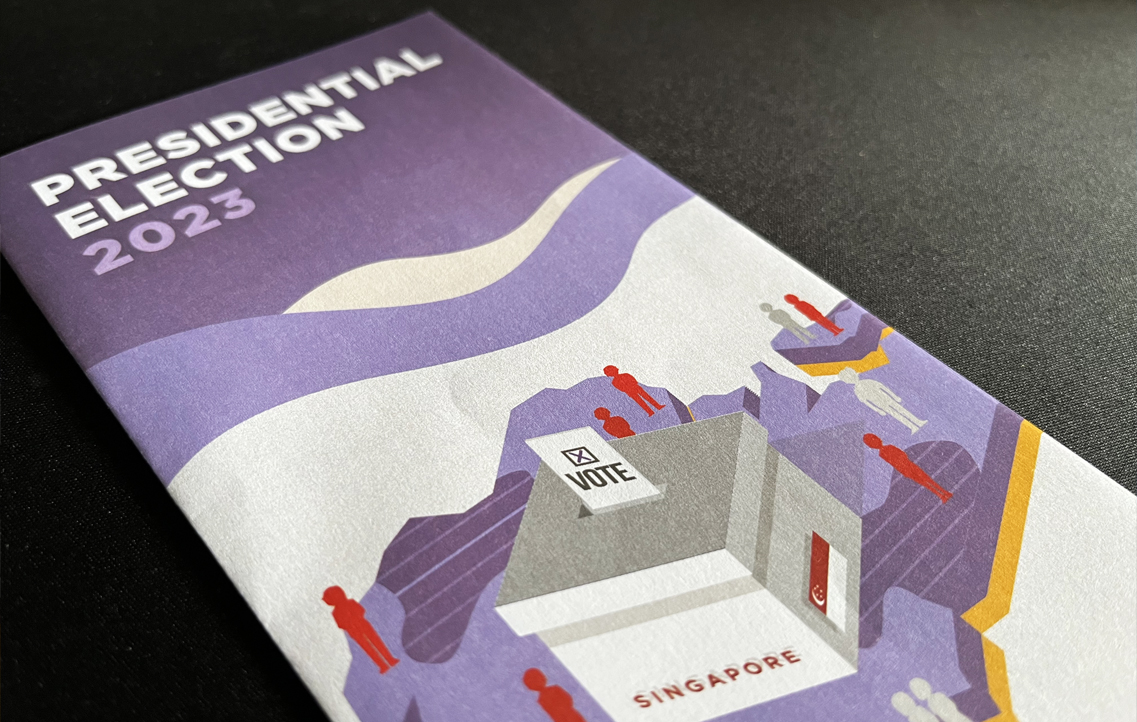
With the first of two presidential candidate broadcasts recently concluded on Thursday (Aug 24), hustings for Singapore’s Presidential Election are underway.
As the three candidates continue to communicate their vision to voters, what are the key themes that can be gleaned from their messages?
A QUESTION OF QUALIFICATIONS
Given the elected president’s role in safeguarding Singapore’s reserves, it comes as no surprise that all three candidates have highlighted their individual competencies.
This is most evident with Mr Tharman Shanmugaratnam, who highlighted his deep knowledge and experience of the reserves, having served as Finance Minister and Deputy Prime Minister.
It was during his stint as Finance Minister that Mr Tharman initiated Singapore’s first ever draw-down from past reserves to support our response to the 2008 global financial crisis.
Mr Ng Kok Song has similarly pointed to his 45 years in public service, with notable stints in the Ministry of Finance, Monetary Authority of Singapore and GIC, as evidence of his deep knowledge and understanding of Singapore’s reserves.
Indeed, Mr Ng’s prior role as chief investment officer of GIC underscores his intimate understanding of how our reserves are reinvested to generate returns for Singapore.
Lastly, Mr Tan Kin Lian has stated that his 30-year experience as chief executive officer of NTUC Income would provide him with the knowledge necessary for safeguarding Singapore’s reserves.
It is indeed notable that all three candidates come with strong experience in finance, whether in public finance or from the private sector. This in itself is unprecedented. Candidates in past presidential elections have tended to come from a diverse range of backgrounds.
THREE DEGREES OF SEPARATION
Beyond qualifications, there was also a strong emphasis on the candidates’ independence from the government.
This is indeed an important point to highlight, as the President’s role in safeguarding the reserves and approving high-level public sector appointments requires independence from the government of the day.
However and unlike their qualifications in finance, such notions of “independence” from the government vary across the three candidates.
In his presidential candidate broadcast, Mr Tharman highlighted his “independence of mind” and sought to assure voters that he will maintain this approach in fulfilling his presidential duties if elected. This is despite his prior roles in Cabinet and the People’s Action Party, which have resulted in Mr Tharman being seen as the “establishment” candidate.
Independence is a point that has repeatedly been highlighted by Mr Ng, who positions himself as the only truly non-partisan presidential candidate. According to Mr Ng, this will allow him to fulfil his duties “without fear or favour”, should he be elected.
While it is indeed true Mr Ng has enjoyed no party affiliations, there are many who continue to perceive him as a close-to-establishment figure, given his strong background in the public service.
Similarly, Mr Tan has emphasised his independence from the government, although he possesses political affiliations. Aside from his past membership in the People’s Action Party, Mr Tan’s presidential bid is supported by opposition figures such as Mr Tan Jee Say and Mr Lim Tean.
There are therefore three degrees of separation among the candidates from what is perceived as the “establishment”, with Mr Tharman’s background in Cabinet placing him closest to the establishment.
Mr Ng’s strong experience in public service has also led to perceptions of him being an establishment, albeit non-partisan, figure. Mr Tan’s support from members of the opposition places him much further away from the establishment.
Interestingly, all three candidates have stressed that they do not come from privileged or elite backgrounds.
Mr Ng has on several occasions emphasised his humble beginnings in Kangkar and the financial hardships he faced growing up. Mr Tan has similarly mentioned his modest background while Mr Tharman has pointed to the fact that he made his way up the public service as a non-scholar.
By sharing their roots, all three candidates have highlighted their ability to empathise with and unify Singaporeans from all walks of life.
A UNIFYING FORCE
In announcing his presidential bid, Mr Tharman said that he would “keep the social compact strong by being the unifying figure”. This was reiterated in his presidential candidate broadcast, where he vowed to be a “unifying figure at home and to advance Singapore’s interests abroad”.
Similarly, Mr Ng said he would promote social unity by advocating for a more caring and kinder society. Furthermore, he pointed out that his political neutrality puts him in a better position to unify the country.
Mr Tan also said that he aims to “build a nation where the people are united and live in harmony” and clarified that he does not intend to be an adversary to the elected government.
This unifying role of the president is perhaps an important point to keep in mind, particularly during the hustings when “tactical statements” can divide opinions and people.
While it is natural for competitors in any race to jostle for pole positions and seek to differentiate themselves from each other, it would not do Singapore any good if in the run-up to selecting this unifying figure, people ironically become divided.
Each of Singapore’s three individuals running for the Presidential Election has his own unique background and message. Voters will have their work cut out for them.
Dr Woo Jun Jie is Senior Research Fellow at the Institute of Policy Studies, National University of Singapore.
This piece was first published in CNA on 26 August 2023.
